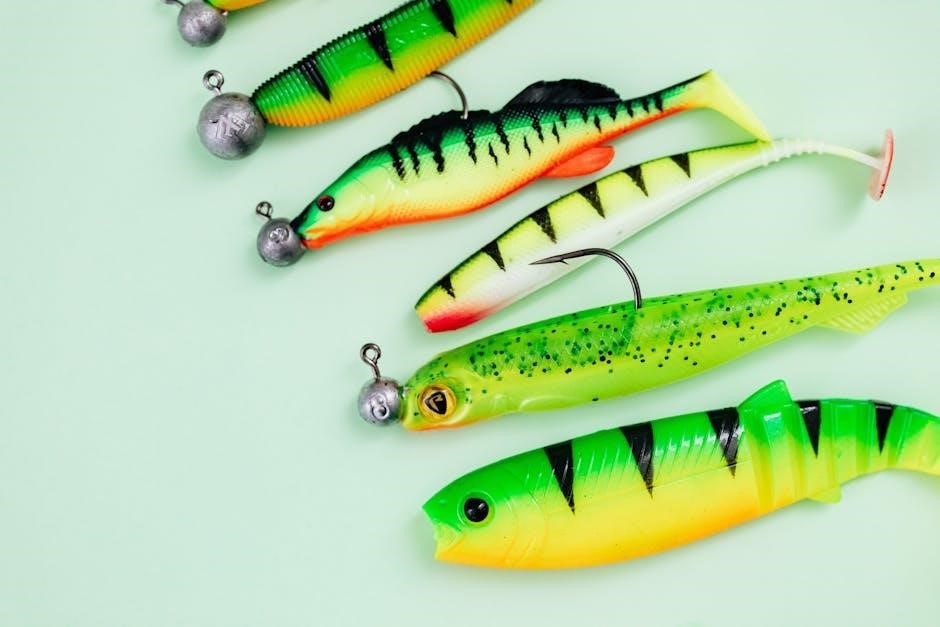
nj saltwater fishing regulations 2024 pdf
The 2024 New Jersey Saltwater Fishing Regulations outline essential guidelines for anglers to ensure sustainable marine resources. These rules, updated annually, balance conservation with recreational and commercial fishing needs, promoting a healthy marine ecosystem for future generations while adhering to federal and state environmental standards.
Overview of Key Changes for 2024
The 2024 New Jersey Saltwater Fishing Regulations introduce several updates to ensure sustainable fishing practices. Key changes include adjustments to size limits, bag limits, and seasonal restrictions for species like striped bass and black sea bass. Fluke regulations were finalized for both 2024 and 2025, with specific attention to maintaining healthy fish populations. Additionally, gear restrictions have been refined to minimize environmental impact. Anglers are encouraged to review the updated rules, as non-compliance can lead to penalties. These modifications aim to balance recreational and commercial fishing interests while protecting marine ecosystems for future generations.
Importance of Adhering to Regulations
Adhering to the 2024 New Jersey Saltwater Fishing Regulations is crucial for maintaining healthy fish populations and ensuring the long-term sustainability of marine ecosystems. By following size limits, bag limits, and seasonal restrictions, anglers help prevent overfishing and protect vulnerable species. Compliance also supports conservation efforts, which are essential for balancing recreational and commercial fishing interests. Violating these regulations can result in penalties, harming both individual anglers and the broader fishing community. Responsible fishing practices not only preserve marine life but also ensure that future generations can enjoy the sport. Staying informed and abiding by the rules is every angler’s responsibility.
Where to Find the Official 2024 NJ Saltwater Fishing Regulations PDF
The official 2024 New Jersey Saltwater Fishing Regulations PDF can be downloaded from the New Jersey Department of Environmental Protection (NJDEP) website. Additionally, the eRegulations platform provides an accessible version of the regulations. Anglers can also visit the NJ Saltwater Registry for updated information. These resources ensure anglers have easy access to the latest rules, size limits, and seasonal restrictions. Downloading the PDF is free and highly recommended for staying informed about all regulatory changes for the 2024 fishing season.
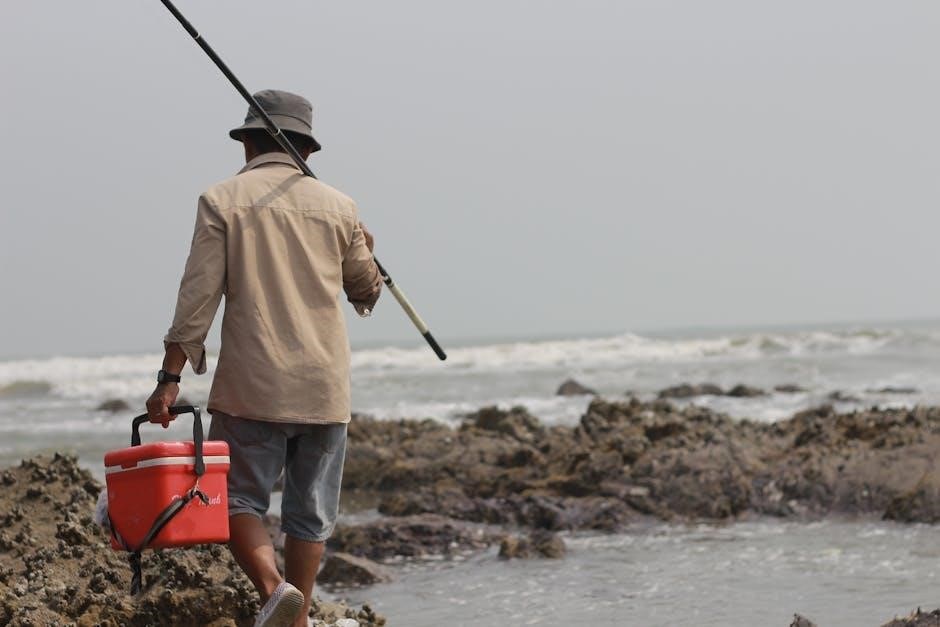
Recreational vs. Commercial Fishing Regulations
Recreational fishing requires permits for personal use with specific bag limits, while commercial fishing involves stricter licenses and regulations to manage large-scale operations sustainably.
Key Differences in Permits and Limits
Recreational anglers in New Jersey require a free or low-cost permit, with stricter bag limits and size restrictions to ensure sustainability. Commercial fishing, however, mandates specialized licenses tied to specific gear types and quotas. Recreational permits are typically issued for personal use, with limits on the number of fish per person, while commercial licenses allow for larger catches but require detailed reporting and adherence to seasonal restrictions. These distinctions aim to balance recreational access with the needs of commercial fisheries, ensuring the long-term health of marine populations. Understanding these differences is crucial for compliance with 2024 regulations.
Recreational Fishing Permit Requirements
A recreational fishing permit is required for anglers 16 years and older in New Jersey. Residents and non-residents must obtain a valid permit, with fees varying based on residency status. The permit ensures compliance with state regulations and supports conservation efforts. Anglers can obtain permits online or through authorized agents, providing a valid government ID. Exemptions apply for seniors over 70 and active military personnel. The permit must be carried while fishing and presented upon request. This system helps manage fish populations and maintain sustainable practices for future generations of anglers.
Commercial Fishing License Mandates
A commercial fishing license is mandatory for individuals and businesses engaged in saltwater fishing for profit in New Jersey. Licenses are issued by the NJ Department of Environmental Protection, with specific requirements for vessel registration and gear restrictions. Applicants must provide detailed information about their fishing operations, including gear types and target species; Fees vary based on the scale of operations and residency status. Renewal is required annually, with updates to reflect any changes in fishing practices. Compliance with these mandates ensures fair access to marine resources and supports the sustainability of New Jersey’s commercial fishing industry. Penalties apply for unlicensed commercial fishing activities.
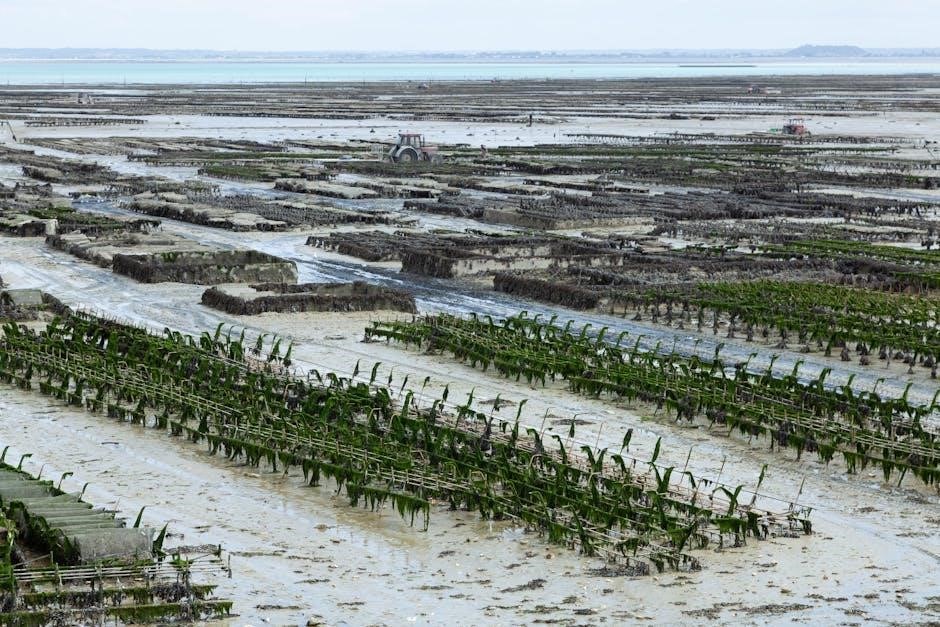
Key Species and Their Regulations
New Jersey’s 2024 saltwater fishing regulations focus on key species like striped bass, fluke, bluefish, and black sea bass, with specific size limits, bag restrictions, and seasonal closures to ensure sustainable fishing practices and maintain healthy marine populations.
Striped Bass: Size Limits and Bag Restrictions
For 2024, striped bass regulations in New Jersey require recreational anglers to adhere to a slot limit of 28 inches to 31 inches for their catch. Anglers are permitted to harvest one striped bass within this size range per day. It is important to note that fish are measured from the tip of the snout to the tip of the tail, ensuring accurate size assessment. These regulations aim to conserve striped bass populations while providing fair fishing opportunities. Adhering to these limits is crucial for maintaining the sustainability of this iconic species in New Jersey’s coastal waters.
Fluke: Seasonal Variations and Catch Limits
The 2024 New Jersey saltwater fishing regulations for fluke (summer flounder) establish a season from May 17 to June 19. During this period, anglers are required to adhere to a minimum size limit of 12.5 inches and a bag limit of 10 fish per person. These rules are designed to protect the fluke population and ensure sustainable fishing practices. Additionally, cleaning or filleting fluke while at sea is prohibited to prevent undersized fish from being harvested. These regulations reflect the state’s commitment to managing marine resources responsibly and maintaining healthy fish stocks for future generations. Anglers are encouraged to familiarize themselves with these guidelines to ensure compliance.
Bluefish: Regulations and Best Practices
For bluefish, the 2024 New Jersey saltwater fishing regulations do not specify a closed season or minimum size limit. However, anglers are restricted to a bag limit of 3 fish per person. To promote sustainable fishing, the use of circle hooks is recommended when bait fishing to reduce bycatch and protect marine life. Additionally, handling bluefish gently and releasing undersized or injured fish can help conserve the population. These guidelines aim to balance recreational opportunities with conservation efforts, ensuring the long-term health of bluefish stocks in New Jersey waters.
Black Sea Bass: Updated Rules for 2024
For 2024, the regulations for Black Sea Bass in New Jersey have been updated to ensure sustainable fishing practices. The season runs from May 17 to June 19, with a minimum size limit of 12.5 inches and a bag limit of 10 fish per person. These changes aim to protect the species during critical spawning periods and maintain healthy population levels. Anglers are encouraged to practice careful handling and release techniques to minimize stress on caught-and-released fish. Adhering to these rules helps conserve Black Sea Bass for future generations while supporting the balance of marine ecosystems.
Other Species: Overview of Limits and Seasons
Beyond key species, New Jersey’s 2024 saltwater fishing regulations also address other marine life to ensure balanced ecosystems. Bluefish, for example, have no closed season but are subject to a 10-fish bag limit per person. Weakfish regulations remain stringent, with a 1-fish bag limit to protect declining populations. Sharks, including species like spiny dogfish, are regulated with specific permits and size limits to support conservation efforts. These rules aim to safeguard biodiversity while providing fair fishing opportunities. Anglers are encouraged to familiarize themselves with these guidelines to promote sustainable fishing practices and protect New Jersey’s marine resources for future generations.
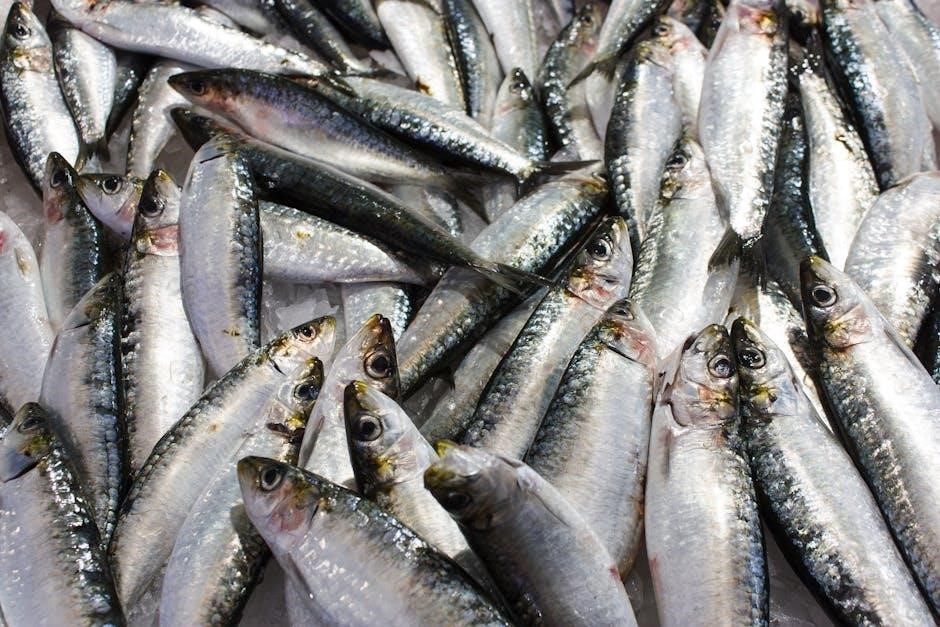
Permits and Licensing
Recreational and commercial anglers must obtain proper permits and licenses to ensure compliance with 2024 regulations, promoting sustainable fishing practices and marine conservation efforts statewide.
Recreational Fishing Permits: Application Process
Recreational anglers in New Jersey can obtain their 2024 fishing permits through the New Jersey Sea Grant Consortium. The process is straightforward and free of charge. Applicants must visit the official NJSGC website, complete the online form, and print their permit. This ensures compliance with state regulations and supports marine conservation efforts. Additionally, anglers can access the permit via a QR code provided in the 2024 NJ Saltwater Fishing Regulations PDF. Proper documentation is essential for a legal and enjoyable fishing experience, helping to preserve New Jersey’s marine resources for future generations.
Commercial Fishing Licenses: Requirements
Commercial fishing licenses in New Jersey are mandated to ensure sustainable practices and regulate industry activities. Applicants must submit detailed documentation, including vessel registration, gear specifications, and catch reports. Licenses are issued by the New Jersey Division of Fish and Wildlife, requiring compliance with state and federal fisheries management plans. Fees vary based on the type of fishing operation and gear used. Renewal applications must be filed annually, with updated information to reflect changes in operations. Proper licensing helps maintain the balance between commercial fishing and marine conservation, ensuring the longevity of New Jersey’s fisheries.
Special Permits for Specific Species
Special permits are required for fishing certain species in New Jersey’s saltwater areas. These permits ensure the conservation of vulnerable or highly sought-after species, such as striped bass, fluke, and black sea bass. Anglers must apply separately for these permits, providing detailed information about their fishing operations. Eligibility criteria may include vessel registration, gear type, and catch history. The permits often come with specific restrictions, such as catch limits, seasonal closures, and gear modifications, to protect the species and their habitats. These permits are issued by the New Jersey Division of Fish and Wildlife and are essential for maintaining sustainable fisheries and compliance with federal regulations.
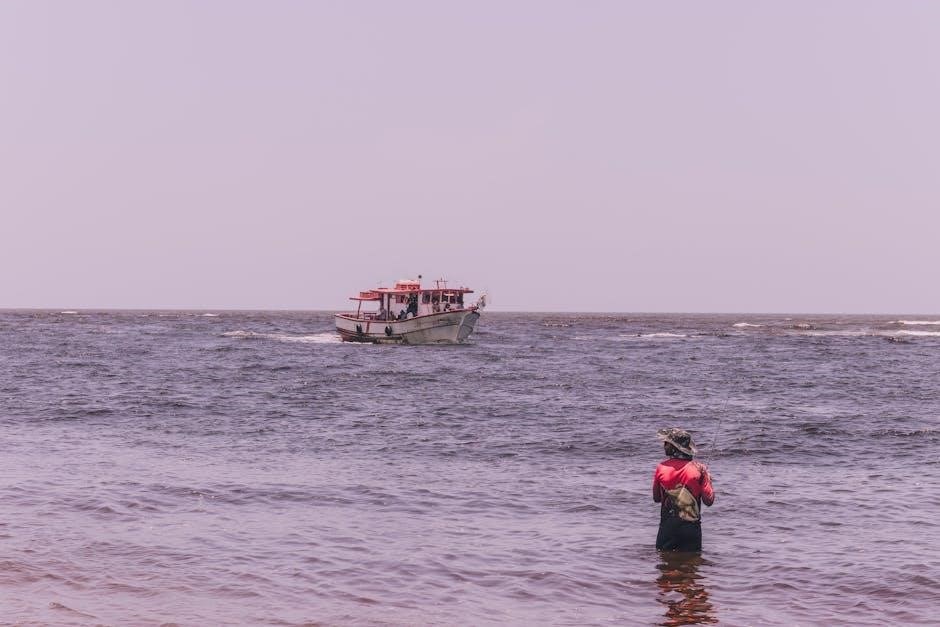
Gear Restrictions
Gear restrictions in New Jersey’s 2024 saltwater fishing regulations aim to protect marine life and habitats. Certain gear types are prohibited to minimize environmental impact and ensure sustainable fishing practices.
Allowed Fishing Gear and Equipment
New Jersey’s 2024 saltwater fishing regulations specify allowable gear to promote sustainable fishing practices. Anglers may use hook-and-line gear, with a maximum of three hooks per line, and non-stainless steel circles to reduce bycatch. Nets, such as cast nets for baitfish, are permitted but must meet size restrictions; Crab traps, including blue crab traps, are allowed but must have escape vents and biodegradable panels. Spearfishing gear is also permitted under specific conditions. The use of these gears is regulated to minimize habitat damage and protect non-target species, ensuring a balance between recreational fishing and marine conservation efforts.
Prohibited Gear to Protect Marine Life
The 2024 New Jersey Saltwater Fishing Regulations prohibit certain gears to safeguard marine ecosystems. Gillnets, longlines, and traps without escape vents or biodegradable panels are banned to reduce bycatch and protect endangered species. nets with mesh sizes below legal limits are also prohibited to prevent juvenile fish capture. Additionally, gear that causes habitat destruction, such as dredges or bottom-scraping equipment, is restricted. These regulations aim to minimize environmental impact and ensure sustainable fishing practices, protecting both target species and non-target marine life from unnecessary harm and promoting a balanced ecosystem for future generations. Adhering to these gear restrictions is crucial for conservation efforts.
Fishing Seasons
Fishing seasons in New Jersey vary by species to ensure sustainability. For example, Black Sea Bass season runs from May 17 to June 19, with a 12.5-inch minimum size. Anglers must stay informed about these dates to comply with regulations and protect marine populations.
Seasonal Variations for Key Species
Fishing seasons in New Jersey vary significantly by species to align with ecological and management needs. For instance, Black Sea Bass season runs from May 17 to June 19, with a 12.5-inch minimum size and a 10-fish bag limit. Striped Bass regulations allow one fish between 28 and 31 inches, while Fluke (Summer Flounder) seasons and limits were set for both 2024 and 2025 to ensure sustainability. These seasonal adjustments aim to protect spawning periods, reduce overfishing, and maintain healthy fish populations. Anglers must stay informed about these variations to comply with regulations and contribute to the conservation of marine resources.
Impact of Seasonal Changes on Fishing
Seasonal changes significantly influence fishing opportunities and strategies in New Jersey. As species migrate or become more active during specific times of the year, anglers must adapt to optimize their catches. For example, Black Sea Bass are more abundant in late spring, while Striped Bass are targeted in cooler months. These shifts necessitate adjustments in gear, locations, and techniques to align with species behavior. Understanding and respecting these seasonal patterns is crucial for successful and sustainable fishing, ensuring that fish populations remain robust for future generations. Adhering to the regulations helps maintain this balance, supporting both recreational and ecological goals.

Enforcement and Penalties
New Jersey’s marine enforcement ensures compliance with fishing regulations through patrols and inspections. Violations may result in fines, license suspension, or confiscation of gear and catch.
How Regulations Are Enforced
New Jersey’s saltwater fishing regulations are enforced by the New Jersey Division of Fish and Wildlife and the U.S. Coast Guard. Marine patrols monitor fishing activities, ensuring compliance with size limits, bag limits, and permits. Inspections are conducted at docks, piers, and aboard vessels to verify catches and gear. Electronic monitoring systems track commercial fishing operations to prevent overfishing. Anglers are encouraged to report violations to authorities, fostering a community role in conservation. Strict enforcement ensures sustainable marine resources and maintains the integrity of New Jersey’s ecosystems for future generations. Compliance is crucial to avoid penalties and support environmental stewardship.
Consequences of Violating Fishing Regulations
Violating New Jersey’s saltwater fishing regulations can result in significant penalties, including fines, license suspensions, and even criminal charges. Fines can range from hundreds to thousands of dollars, depending on the severity of the offense. Repeat violations may lead to the confiscation of fishing gear and vessels. Additionally, violations can impact an individual’s ability to obtain future fishing permits. These penalties aim to deter illegal activities and protect marine ecosystems. Compliance is essential to avoid legal consequences and contribute to the conservation of New Jersey’s marine resources. By adhering to regulations, anglers play a crucial role in maintaining sustainable fishing practices.
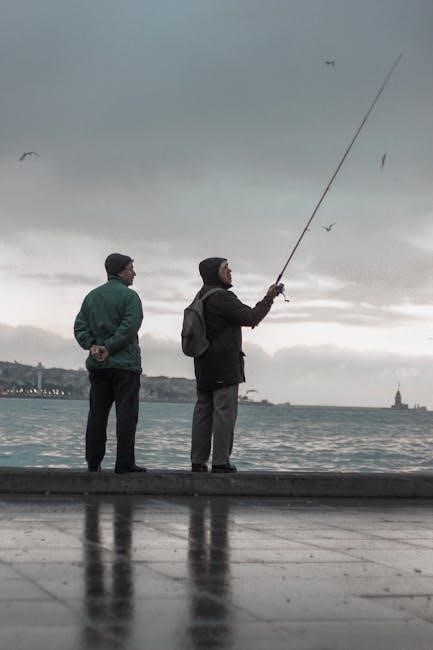
Conservation Efforts
New Jersey’s 2024 saltwater fishing regulations emphasize marine conservation through size limits, seasonal closures, and gear restrictions to protect fish populations and habitats, ensuring sustainable fishing practices.
Role of Anglers in Marine Conservation
Anglers play a vital role in marine conservation by adhering to size limits, bag restrictions, and seasonal closures. Proper handling and release techniques minimize fish mortality, while reporting catches aids in data collection. By avoiding sensitive habitats and supporting sustainable practices, anglers help protect marine ecosystems. Public awareness campaigns and education on regulations empower anglers to contribute actively to conservation efforts, ensuring healthy fish populations for future generations. Staying informed and involved in local initiatives further strengthens their impact on preserving New Jersey’s marine biodiversity.
Sustainable Fishing Practices
Sustainable fishing practices are crucial for maintaining healthy marine populations. Anglers should use gear appropriate for target species to minimize bycatch and habitat damage. Proper handling techniques, such as avoiding excessive handling and using barbless hooks, reduce fish stress. Adhering to size limits ensures immature fish can reproduce before being harvested. Catch-and-release fishing, when done correctly, helps conserve species. Additionally, avoiding fishing in sensitive habitats and during vulnerable life stages protects ecosystems. Educating others about these practices fosters a community committed to conservation. By adopting sustainable methods, anglers contribute to the long-term health of marine resources, ensuring fishing opportunities for future generations.
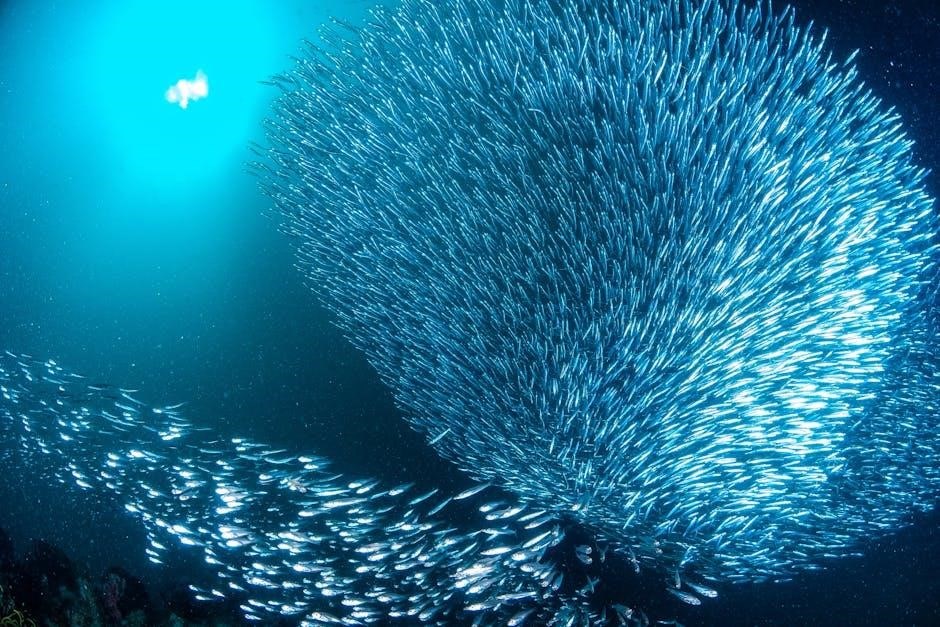
Future Outlook
The 2025 New Jersey saltwater fishing regulations are anticipated to build on 2024’s framework, focusing on enhanced conservation and public awareness to ensure sustainable marine resources.
Anticipated Changes in 2025
For 2025, New Jersey is expected to introduce updated saltwater fishing regulations to align with conservation goals. Changes may include adjustments to size limits, bag restrictions, and seasonal closures to protect key species like fluke and black sea bass. Public input and scientific data will likely influence these modifications, ensuring sustainable fish populations. Anglers should anticipate stricter enforcement of catch limits to prevent overfishing. Additionally, there may be new measures to promote responsible fishing practices and enhance public awareness of marine conservation efforts. These updates aim to balance recreational and commercial fishing interests while safeguarding marine ecosystems for future generations.
Public Awareness and Education
Public awareness and education play a crucial role in the success of New Jersey’s saltwater fishing regulations. Efforts to inform anglers about rule changes, species conservation, and sustainable practices are ongoing. The New Jersey Sea Grant Consortium and Department of Environmental Protection collaborate to provide free, downloadable recreational fishing regulation cards. These resources, along with websites like eRegulations.com, ensure anglers have easy access to updated information. QR codes on regulation cards also direct users to digital resources, promoting compliance and responsible fishing. By staying informed, anglers contribute to the conservation of marine life and the long-term health of New Jersey’s fisheries.
The 2024 New Jersey Saltwater Fishing Regulations aim to balance recreational enjoyment with marine conservation, ensuring sustainable fisheries for future generations. Stay informed and compliant to protect marine life.
Staying Informed About Regulation Updates
Staying informed about updates to the 2024 New Jersey Saltwater Fishing Regulations is crucial for compliance. Anglers can access the latest information through the New Jersey Department of Environmental Protection website or by downloading the official 2024 NJ Saltwater Fishing Regulations PDF. Regularly checking for updates ensures awareness of changes in size limits, bag restrictions, and seasonal variations. Additionally, attending NJ Marine Fisheries Council meetings or subscribing to newsletters from organizations like the New Jersey Sea Grant Consortium provides timely notifications. By staying informed, anglers can contribute to marine conservation while enjoying their fishing activities responsibly.
Final Thoughts on Responsible Fishing
Responsible fishing is essential for preserving New Jersey’s marine ecosystems. Adhering to the 2024 saltwater fishing regulations ensures sustainable fish populations and maintains the balance of marine life. Anglers should always practice proper fish handling and release techniques to minimize their impact on the environment. By staying informed and following the guidelines outlined in the 2024 NJ Saltwater Fishing Regulations PDF, anglers can help conserve marine resources for future generations. Responsible fishing not only protects the environment but also enhances the overall fishing experience for everyone. Let’s all do our part to ensure the longevity of New Jersey’s rich marine heritage.